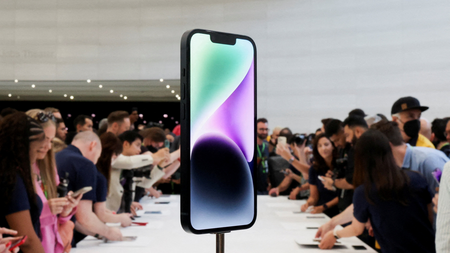Introduction
Apple is one of the most successful companies in the world, and a big part of their success is due to their understanding of human psychology. They use a variety of psychological techniques to influence consumers' buying decisions consciously and subconsciously to sustain the demand for their “elitist” products.
The tech giant's ability to create a frenzy around its product launches, generate unwavering loyalty among customers, and maintain an aura of exclusivity is a testament to the brilliant psychology behind Apple sales.
Many articles have broken down Apple’s psychological marketing strategy into 4 overarching “S” categories: Scarcity, Status, Social Proof and Simplicity.
1. Scarcity
In the current societal climate, immediate gratification for items is at an all time high and consumers want to get the latest items as soon as they can. Apple utilises this behavioural factor to turn it into something tangible - their products.
Apple creates this strategy triggering the “fear of missing out” (FOMO) among consumers, driving them to line up outside stores or eagerly await online pre-orders.
FOMO first gained tracking in the early 2000s based on social media usage highlighted by Dr Erin Vogel. Vogel discussed the link of FOMO with the Needed to Belong (NTB) theory which was stated to be motivated through social connections. As the presence of social media grew, FOMO became synonymous with people building a virtual reality of themselves where the apprehension that others might be having more rewarding experiences from which one is absent grew Przybylski et al. (2013). Reed (2020) states that this motivation to form and sustain at least a minimum amount of social connections is one of the most powerful, universal, and influential human drives.
This heightens a sense of urgency with their consumers making them more likely to buy the product before it's gone, even though consumers are already aware that the product will be available all the way until its next release.

The idea of limited availability creates a perception of high value and increases the perceived desirability of Apple products.
2. Status
Apple's marketing campaigns often appeal to consumers' emotions, such as their desire for status, security, or belonging. Apple cleverly but obviously feeds into Maslow’s hierarchy of Needs which are: physiological (food and clothing), safety (job security), love and belonging needs (friendship), esteem, and self-actualisation. By targeting the base level needs, Apple products thereby provide esteem and self-actualisation. This makes consumers more likely to connect with the brand and feel a sense of attachment to their products.
One of the key factors contributing to Apple's success lies in the emotional appeal the brand exudes. Apple products have become more than just devices; they are symbols of status, innovation, and sophistication. All of these traits that Apple exude are what a consumer wants to emulate when others perceive them.
However, over the past few years, many people have experienced a decline in the excitement surrounding Apple’s most popular item - the iPhone. As the technological market becomes more saturated with innovative smartphones and having an iPhone has now become a standard and in some ways, has lost its exclusivity factor. Citi Innovation Lab has reported that one main factor in the slowdown has been the lack of innovation with each iteration of the iPhone resulting in a saturation of just iPhones which cannot be differentiated.
Nonetheless, the meticulously crafted packaging, the satisfying unboxing experience, and the seamless integration of hardware and software all work together to create an emotional connection with consumers.
3. Social Proof
Another psychological aspect that Apple leverages is the principle of social proof. People are naturally inclined to follow the crowd and seek validation from others which follows the NTB theory. Apple capitalises on this by creating a community around its products. The concept of having an “Apple Ecosystem” has become a reflection of making your technological use as straightforward as possible which many consumers have bought into even if they may not necessarily require a specific Apple product.
The "Apple Tribe" is a dedicated group of enthusiasts who proudly display their allegiance to the brand. Apple stores, with their clean lines and inviting atmosphere, serve as gathering places for this community. The Genius Bar offers a sense of support and belonging, further solidifying the customer-brand relationship.

This concept has even gone as far to have Apple-dedicated companies who only use or supply Apple supported items. This results in followers dedicated to that company being compelled to also feed into the societal movement of Apple.
4. Simplicity
Apple understands the power of perception and uses it to its advantage. The company's marketing strategy revolves around how to tap into consumers' desire for elegance and simplicity.
Apple products are designed to be simple and easy to use. This makes them more appealing to consumers who are busy or who don't want to spend a lot of time learning how to use a new product. Apple's products are also designed to be aesthetically pleasing, which further enhances their appeal. By positioning their products as objects of desire, they effectively play into the psychological need for self-expression and identity creation.

Many other factors such as user-centred design, psychology of the price and a combination of emotional appeal and community building. By understanding and leveraging these psychological principles, Apple has mastered the art of creating not just products, but experiences that resonate deeply with consumers.
Whether you're an Apple enthusiast or not, there's no denying the impact the brand has had on the world of consumer electronics and the way we perceive and desire technology.
What is your favourite Apple product? Drop a comment in our WhatsApp community group here.



